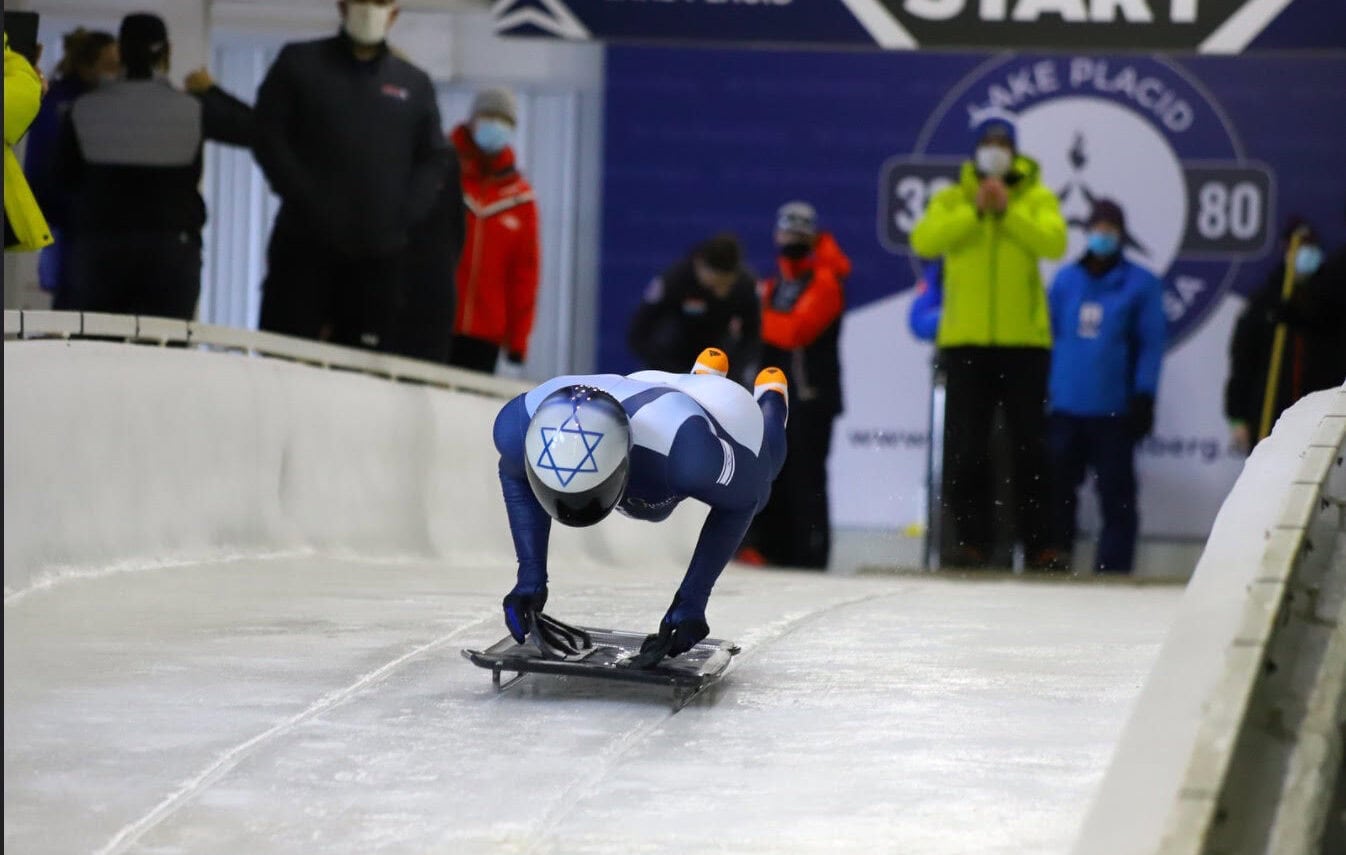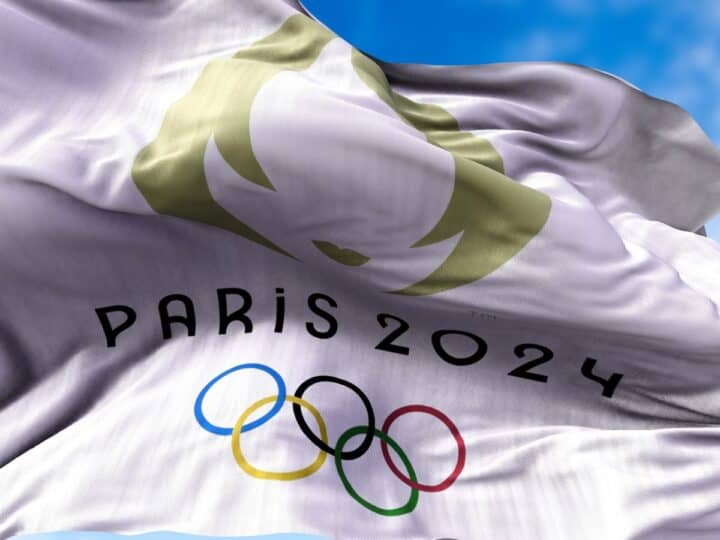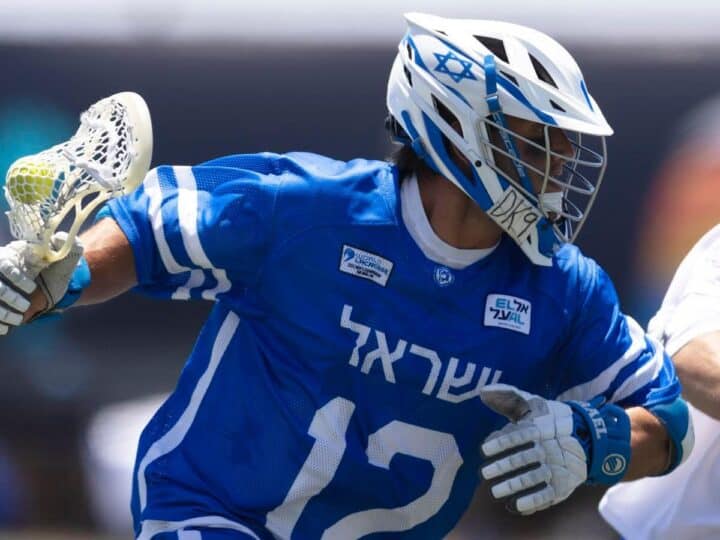The 2020 Summer Olympics in Tokyo were record breaking for Israel.
The Israeli delegation won two gold medals, having in the previous 50 years of participating managed to clinch only one. It won eight medals overall, the most an Israeli team has ever earned in a single Summer Olympics.
Hopes in Israel are even higher for the upcoming 2024 Summer Olympic Games in Paris.
The Frozen Chosen
But when it comes to the Winter Olympics, Israel has counted it as a win just to be able to send a delegation.
Israeli American winter athletes Jared Firestone (skeleton racing) and AJ Edelman (bobsledding) want to change this status quo with their initiative “The Frozen Chosen.”
“The goal of the initiative is to bring Israel’s largest delegation ever to the 2026 Winter Olympics,” Firestone tells ISRAEL21c. “To create an ecosystem to allow that number to grow in 2030, in 2034 and so on.”
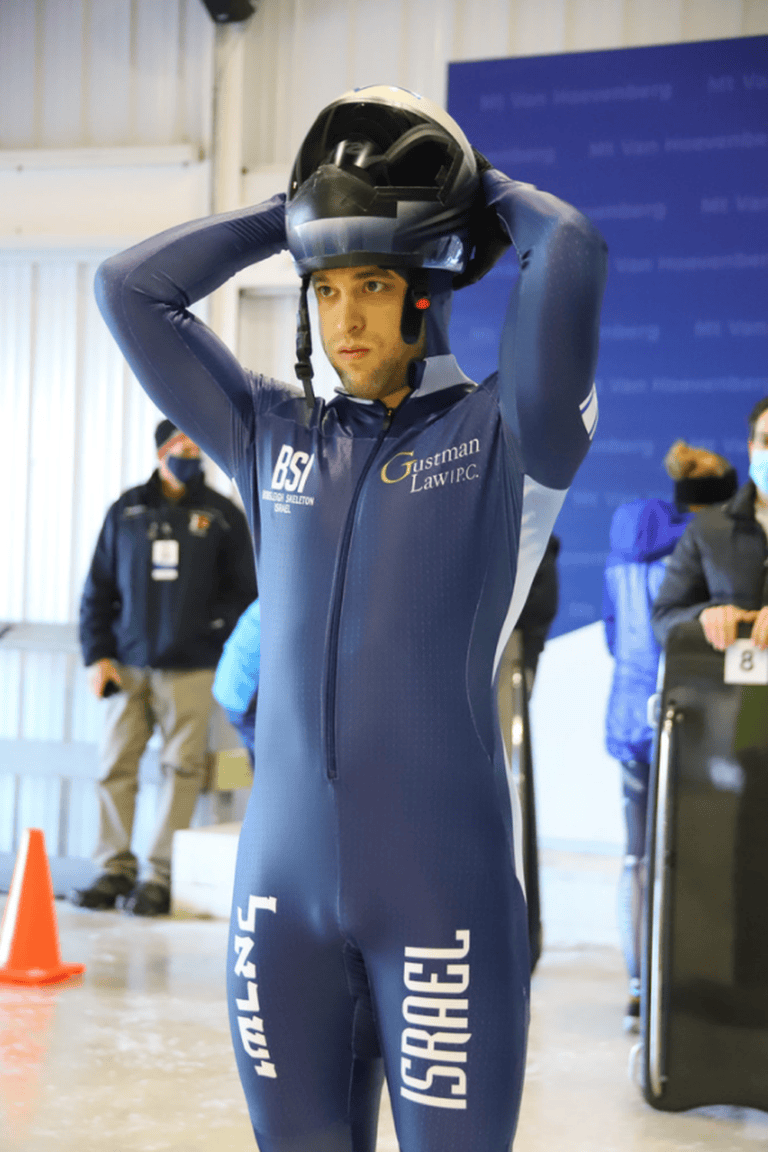
The Frozen Chosen was born out of the Advancing Jewish Athletics non-profit, also founded by Firestone and Edelman, which offers donor-raised grants to exceptional Jewish athletes (Israeli and otherwise) competing in winter sports and struggling to find sponsorships.
In contrast, the Frozen Chosen gives grants to exceptional Israeli athletes, Jewish or not.
Israel’s potential delegation
Edelman, who since October 7 has been busy advocating for Israel on social media, competed for the Jewish state as a skeleton athlete at the 2018 Winter Olympics in Pyeongchang, South Korea.
Edelman’s brother Alex, in his recent HBO solo comedy special, said he bet their dad $50 that AJ wouldn’t make the Olympics.
“But he did. He made the Olympics. He’s one of the 30 best skeleton athletes on the planet, out of the 42 skeleton athletes on the planet. And he did it for Israel,” Alex Edelman told his audience proudly.
The Israeli delegation of 10 athletes in 2018 was the largest ever sent by Israel to the Winter Games since its first participation in 1994.
Edelman hopes to get 30 Israeli contenders to the 2026 Milan Games.
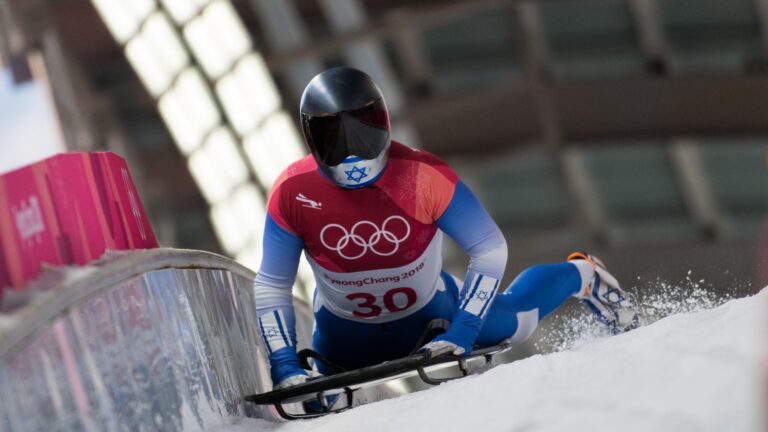
Should the plans materialize, the delegation would consist mostly of the Israel National Bobsled Team and individual Olympic-level skeleton racers, including Firestone.
In fact, Edelman retired from skeleton after the 2018 Games and joined the bobsled team in 2020. He says his retirement was prompted by seeing Firestone, whom he calls “a superior talent than me.”
Winter sports in the desert?
Edelman, 33, and Firestone, 34, explain it is a misconception that winter sports can’t be nurtured in a country with an arid climate, such as Israel.
At least when it comes to skeleton and bobsled.
“There are only 12 bobsled tracks in the entire world; it costs $150 million to build one,” explains Edelman.
“We live in Israel for seven or eight months of the year and travel through the winter months [for bobsled track training]. But it’s the same for many other countries in the world — Britain, Poland, Hungary and others.”
The rest of the time, Edelman says, the athletes do “lifting and sprinting,” which can be done anywhere.
The resources
Firestone began his sporting career as a track-and-field athlete, while Edelman played hockey for 20 years before discovering skeleton sports. Since they were young, however, they both dreamed of representing Israel on an international stage.
The main obstacle, they say, isn’t technical ability but the resources needed to be a national Israeli athlete, including funds for training, equipment, coaching and travel.
Because the winter sports arena is not considered advantageous for Israel, The Olympic Committee of Israel invests mainly in summer sports, leaving most Israeli athletes with potential to qualify for the Winter Olympics self-financing their participation in international competitions.
Firestone practices law in between training, while Edelman has a master’s degree in computer science. Meanwhile, their counterparts from other countries dedicate themselves to training full time.
“We take on a lot of debt, work ridiculous jobs, sleep five hours a day and skip meals,” admits Edelman.
“If we weren’t so intensely dedicated to what we’re trying to achieve, Israel would not be on the verge of tripling its [Winter] Olympic team,” he says.
This is what Israelis do
Firestone adds that what keeps him going is the feeling of being part of a mission — to represent the Jewish people.
“I love the US, but this feels more important. Seeing the Star of David on my helmet gives me the desire and the motivation,” he notes.
Edelman argues that for Israel to invest more into the Winter Olympic athletes would be “the biggest return on investment that there ever has been.”
“The future dividends of such a project would be huge,” reflecting positively on Israel while inspiring the younger generation to follow in the same footsteps, he says.
“If you were to ask someone five or 10 years ago, what are the chances that a country that is the least funded in history of bobsled would be on the precipice of competing in every single one of the sport’s disciplines [in the Winter Olympics], they would say you were out of your mind.
“But this is what Israelis do — we identify an internal problem that is preventing us from achieving success. To solve it, we must do what normally would be impossible, but we make it possible.”




